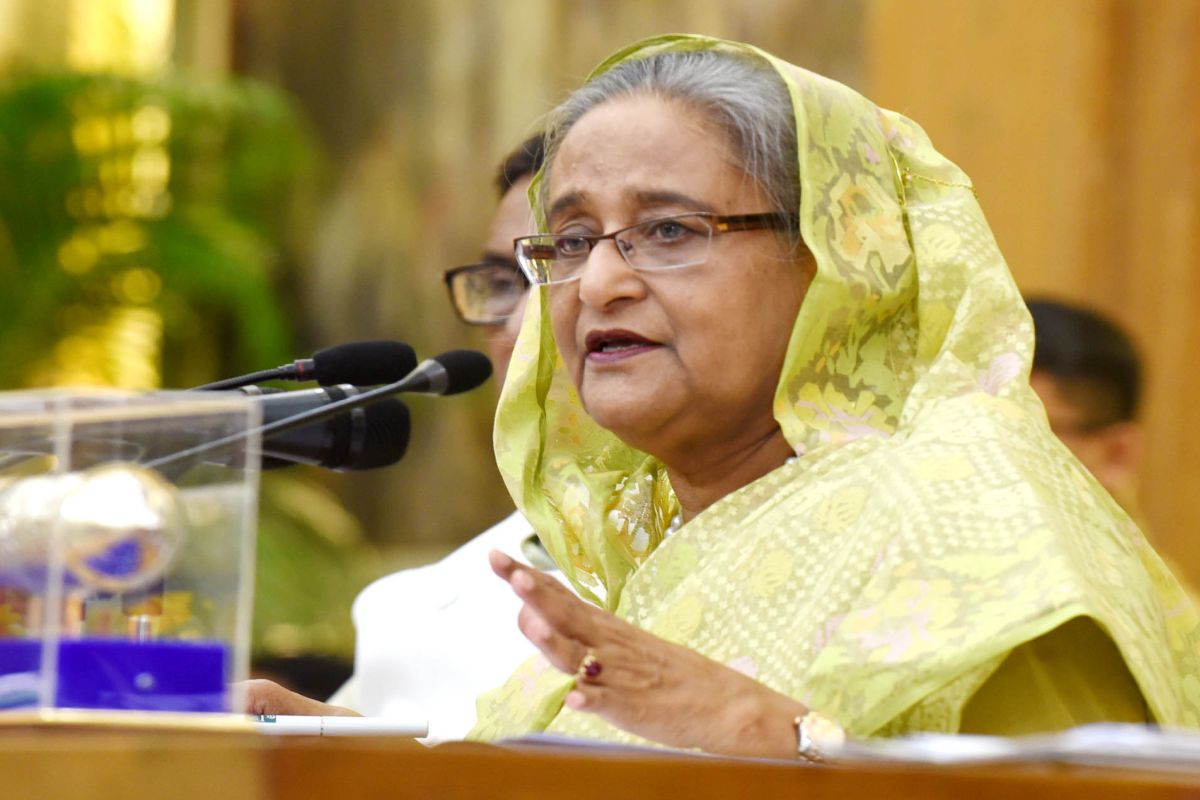Bangladesh portraying India negatively, New Delhi tells Dhaka
The Bangladesh envoy was told that the comments attributed to Bangladesh former Prime Minister Sheikh Hasina have been made in her individual capacity in which India has no role to play.
Karim said that Conte appreciated Bangladesh’s management of the Rohingya crisis, adding that he encouraged Hasina to continue with the policy of hospitality.

Bangladeshi Prime Minister Sheikh Hasina (Photo: IANS)
Bangladesh Prime Minister Sheikh Hasina has sought continued support of the European Union (EU) to ensure a safe, dignified, and sustainable return of the displaced Rohingya refugees back to Myanmar, according to the report on Friday.
“The Bangladesh Prime Minister thanked the EU members, including Italy, for their support to the cause of the Rohingya,” The Daily Star newspaper quoted a joint statement issued on Thursday after talks between Hasina and her Italian counterpart Giuseppe Conte in Rome, as saying.
Advertisement
During a press briefing, Hasina’s Press Secretary Ihsanul Karim said that both sides welcomed the January 23 decision of International Court of Justice (ICJ) on the Rohingya crisis.
Advertisement
Karim said that Conte appreciated Bangladesh’s management of the Rohingya crisis, adding that he encouraged Hasina to continue with the policy of hospitality.
Last year, in November, Hasina had said that over 10 lakh Rohingyas who fled from Myanmar to her country in the wake of “persecution” are a “threat to the security” of the entire region as she urged the global community to resolve the issue.
Over 150 delegates from over 50 countries are taking part in the dialogue to discuss, ideate and debate the most pressing global imperatives.
Bangladesh Foreign Minister AK Abdul Momen, ORF President Samir Saran and BIISS Director General Major General AKM Abdur Rahman also spoke at the function.
At the UN General Assembly in September, the Prime Minister had highlighted the issue of Rohingya refugees becoming a regional problem.
Myanmar is one of India’s strategic neighbours and shares a 1,640-km-long border with a number of northeastern states, including militancy-hit Nagaland and Manipur.
Nearly 738,000 Rohingya refugees are living in camps in Bangladesh since Aug. 25, 2017, following a wave of persecution and violence in Myanmar that the UN has described as a textbook example of ethnic cleansing and possible genocide.
Advertisement